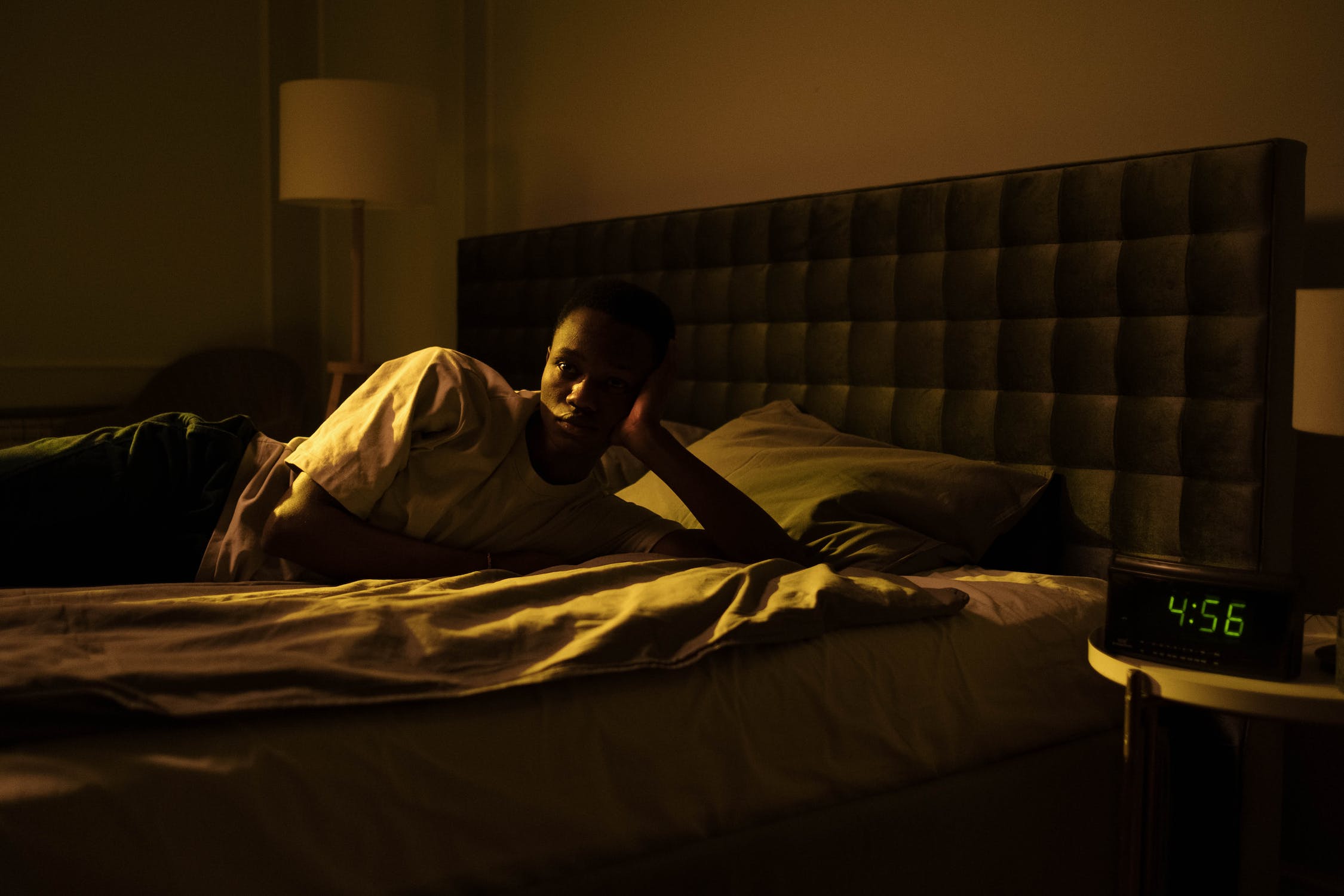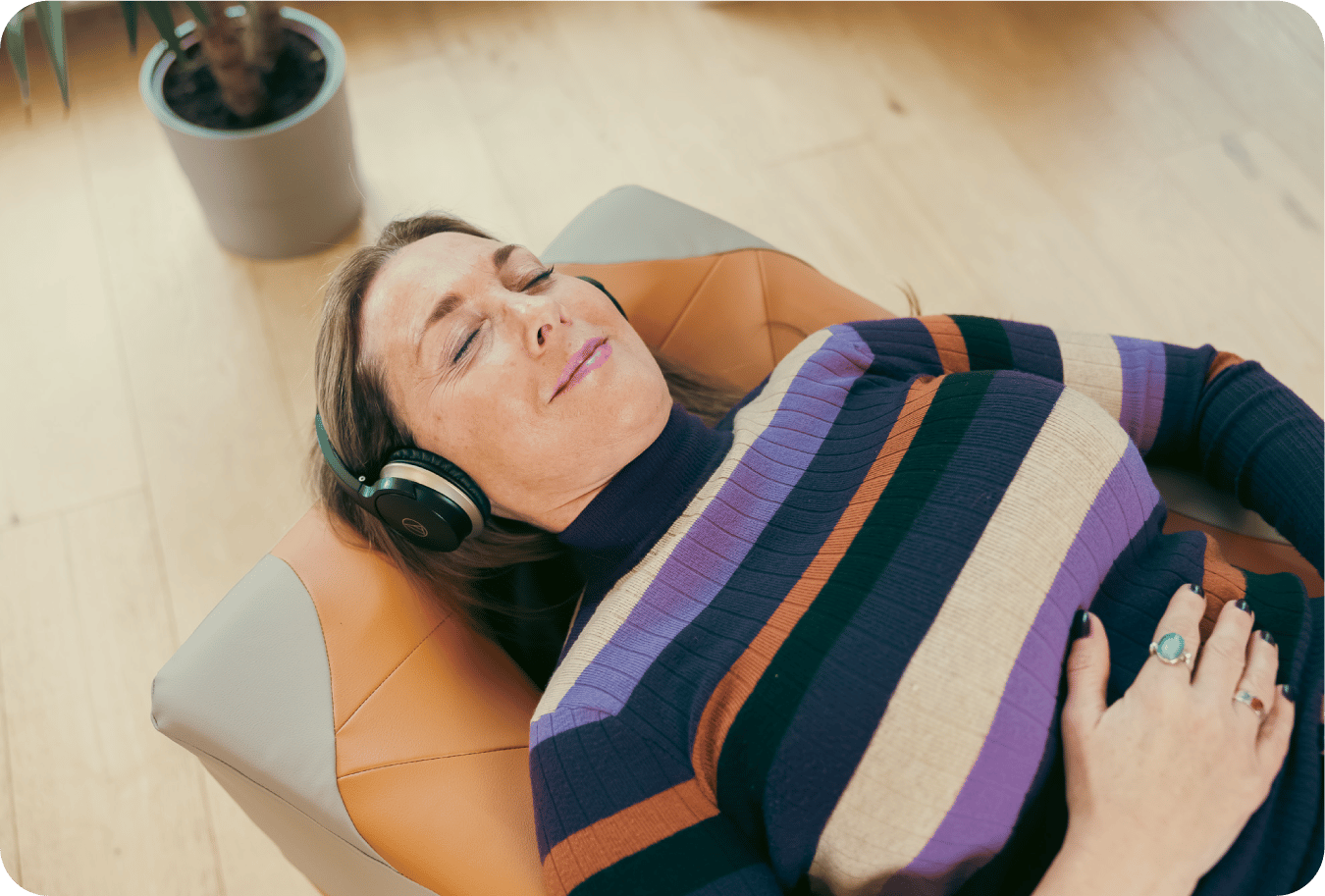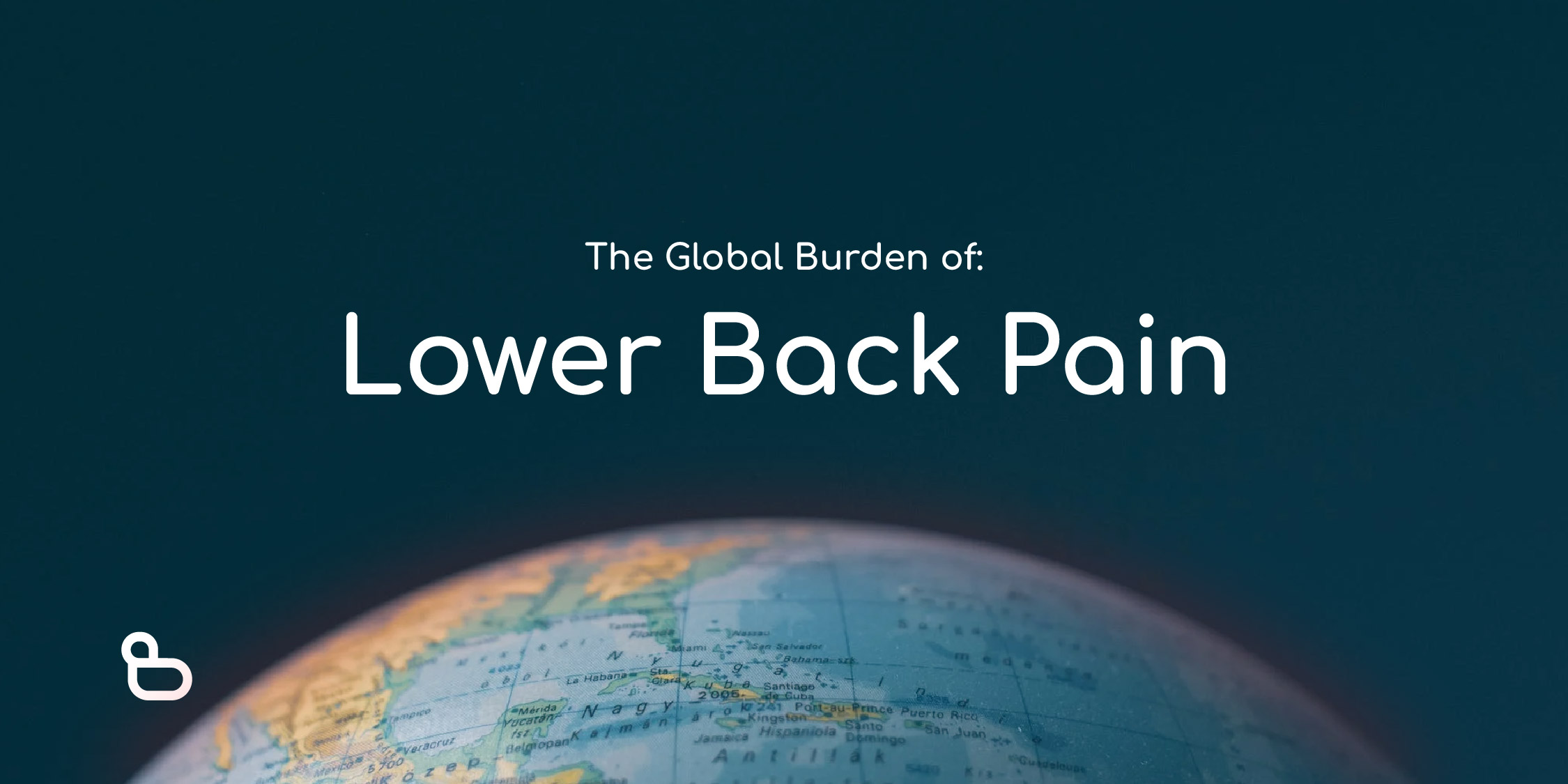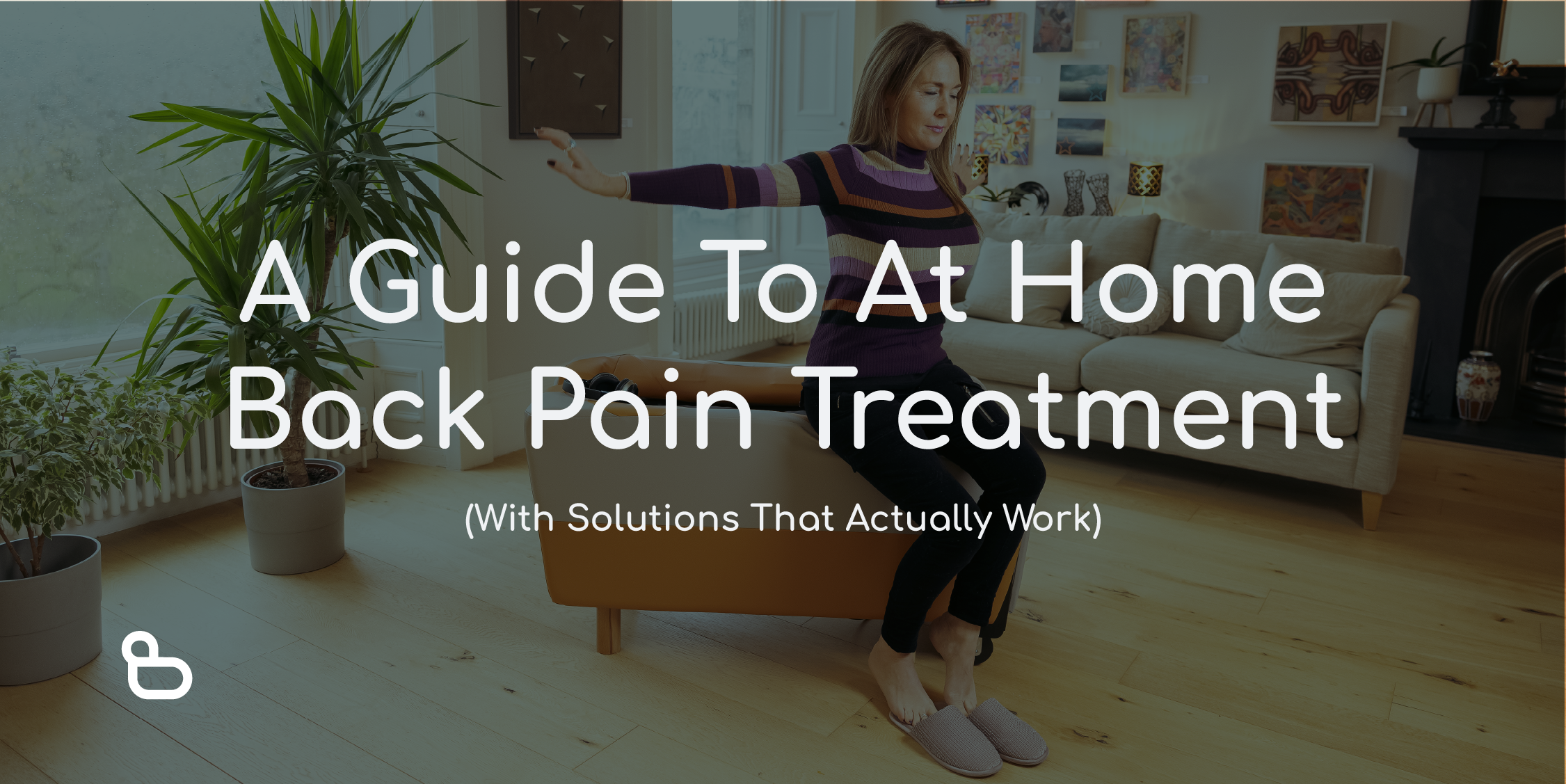The Relationship Between Sleep and Back Pain & How They Affect One Another
"Just five more minutes" is something we've all likely said at some point in our life, or we've hit snooze on our alarm to try and sneak back to sleep before the waking world comes knocking with its endless demands. We like sleep; to feel rested; we hate being tired.
But what if you always struggled to sleep? Unfortunately, that is the reality to a lot of people suffering from back pain, which doesn’t only affect your waking life–stopping you from playing with kids and grandkids, bending over in the garden to bring colour to your borders, and being able to sit comfortably–no, it has a big impact on your sleep, too.
In fact there is a proven link between chronic neck and back pain and insomnia, with as many as two thirds of those suffering with pain experiencing symptoms of the sleep disorder, and here is where it gets cruel: research has found that insomnia heightens our perception of pain so when we get less sleep, we feel the pain more intensely, thus having a worse nights sleep. It’s a horrible cycle that millions of people are stuck in and begs the question: is there a way out?
The short answer is “yes”, but before we get to offering solutions, we need to understand the relationship between pain and sleep a bit better, so you can make the right decisions to reduce your pain and improve your sleep.
The Endless, Sleepless Night
There are nights where you just simply cannot sleep. You count sheep, you breathe deeply, you count backwards from 100, and you make it down to 23 before you realise you’re still wide awake and now you’re really aware of your breathing, too, which makes you even more alert and less able to drift off. The struggle to get to sleep could be due to pain, a racing mind or something else. But, the commonality between all of them is that we fail to relax and get comfortable. Relaxing is a crucial part of sleep as the body needs to go into a state of rest in order to heal itself and prepare itself for the next waking day of physical busyness and business.
The Importance of Sleep & Relaxation
“Sleep is an essential function that allows your body and mind to recharge, leaving you refreshed and alert when you wake up. Healthy sleep also helps the body remain healthy and stave off diseases. Without enough sleep, the brain cannot function properly. This can impair your abilities to concentrate, think clearly, and process memories.” - Sleep Foundation
Obviously, we know that sleep is very beneficial, that’s not why we’re here, we’re here to understand how to get a better night of sleep, especially when we are in pain. Trying to relax while nursing chronic back pain might seem like a pipe dream, you can’t mentally switch off due to the intensity of the pain. However, according to the NHS, practising relaxation techniques such as breathing exercises and meditation can help reduce persistent pain.
Getting into the habit of relaxing before bed is a great one to adopt as any activity that activates the body’s natural relaxation response makes us feel great and has been proven to improve sleep. Dr. Buenaver states that this response helps “by reducing the release of the stress hormones cortisol and adrenaline and by slowing your heart rate and breathing. Your body and mind calm down.” Setting the stage for a night of good quality sleep and reduced pain.
The Brain and Pain
The brain processes pain by releasing endorphins, also known as the body's “natural painkiller”. When the brain understands that the body is in pain, it decides to send a signal down the spinal cord to the nerves to either increase or decrease the perceived severity of the pain so that the body can do its miraculous thing and start trying to repair the damage. However, when the body and brian are sleep deprived, something interesting happens: this natural system starts to break down. Your body, after a single bad night's sleep, will have a much lower pain threshold than after a good night's sleep.
The following piece of text is from MedicalNewsToday’s coverage of the ground-breaking study carried out at the University of California:
“researchers found that the brain’s somatosensory cortex, a region associated with pain sensitivity, was hyperactive when the participants hadn’t slept enough. This confirmed the hypothesis that sleep deprivation would interfere with pain-processing neural circuits.
However, a surprising finding was that the activity in the brain’s nucleus accumbens was lower than usual after a sleepless night. The nucleus accumbens releases the neurotransmitter dopamine, which increases pleasure and relieves pain.”
And the lead researcher on the study and sleep expert, Matthew Walker has this to say about the findings: “the optimistic takeaway here is that sleep is a natural analgesic that can help manage and lower pain.”
So, it’s clear that sleep helps pain, but being in pain disrupts sleep. How on earth do you get yourself out of this loop and reduce your pain enough that you can get that good night of sleep that provides your body with the perfect circumstances to begin healing?
The Snooze-lutions
There are so many solutions out there that promise a better night’s sleep; Businesses know that people need solutions to help their sleep, and they are more than happy to sell them en-masse. But, not all solutions take into account that the consumer is often in pain and only focus on providing comfort. And, yes, while comfort is a very important factor when it comes to sleep, it can only go so far. If you are suffering from sciatica or chronic lower back pain, a softer pillow might not quite be enough: you are still going to bed in pain. And that is the issue, a lot of the solutions are bed-based, but part of the problem is getting into bed in pain. The mind goes into a state of overdrive when we go to sleep, this is thought to be due to it being the perfect time of day for our brain to process the day; we are too busy throughout it, so nightime brings out all those thoughts, and when you’re in pain, it’s more than likely that that is where your focus will be drawn. So, the ideal, really, is to go to bed with reduced pain, and find the solutions that treat pain before bed.
So, are there any solutions, products or rituals that can actually help reduce pain enough for you to get a good night’s sleep? Yes. The common solutions and guidance given to those experiencing painful sleep are as follows:
-
Get Yourself Into A Good Sleep Routine
Having a strict bedtime and wake-up time can help get your body into a natural cycle to prepare itself for sleep. The body is a remarkable thing, so once it knows sleep time is approaching, it will naturally release the right chemicals to prepare the body for rest. This is much easier to achieve when the routine is predictable and consistent.
-
Practice Good Sleep Hygiene
This is similar to having a good sleep routine, but is more about the time before bed. It is good practise to start unwinding before trying to get to sleep–this is where the breathing exercises and meditation come in–allowing your body to unwind. Not using screens and turning on lamps instead of bright lights can also help as one of the brain's responses to darkness is to produce melatonin, aka: the sleep hormone.
-
Get a Good Mattress and Pillow
I know I mentioned above that products focusing on comfort aren’t what you need to focus on to reduce pain, but comfort is still a crucial part of relaxation and sleep and if your mattress and pillow are actively disrupting your sleep, then it’s worth looking into changing them for something more supportive to your body - every little helps.
-
Relax...
Relaxation techniques can help our body reduce the negative effects of stress, making it easier for us to fall to sleep. HelpGuide say "you need to activate your body’s natural relaxation response, a state of deep rest that puts the brakes on stress, slows your breathing and heart rate, lowers your blood pressure, and brings your body and mind back into balance. You can do this by practicing relaxation techniques such as deep breathing, meditation, rhythmic exercise, yoga, or tai chi."
BackHug’s Commitment To Improving Sleep
We now know that a good sleep routine is the key to a better night of sleep, and that giving yourself the time to be mindful and relax your body before bed is a great way to activate those bodily responses to prepare to enter a state of rest. So, what if you could relax and reduce your back tension at the same time?
BackHug has been designed to both reduce pain and put your body into a position that promotes relaxation. As mentioned, the brain sends pain signals through the spinal cord to the nerves, and pain is mostly caused by the nerves being compressed by the joints in the back. That is why BackHug is specifically developed to loosen stiff joints and take the pressure off the nerves which helps the brain communicate with the rest of your body effectively.
“I feel that my sleeping is better, my energy and my strength are better”
- Alison Peebles, Scottish actor and BackHug User
During your session, the leg-rest moves your legs into a 90º position which takes the pressure off your spine to allow the robotic fingers inside the device to effectively relief the pressure built up in your joints. With BackHug being available to use in your home, whenever you need it, you can easily incorporate it into your bedtime routine as a way to promote relaxation in the body before heading to bed; we offer guided meditations and soothing nature sounds to help you slip into that dozy state of mind needed for sleep. Many of our users report falling asleep on the device, which, for us, is a great thing to hear as it means it’s working.
“I woke up 3 hours later and the headache was gone”
- Louise, BackHug User
“I have fallen asleep on it a few times…it’s like having a spa on-tap”
- Paul, BackHug User
Obviously, everybody responds differently to different things. That’s the weird and wonderful thing about our bodies: they are all different, which is why we give everyone the chance to try BackHug for 30-days without having to commit to a purchase.
Back pain is the leading cause of disability worldwide, and sleep deprivation is not too far behind and is becoming more and more of a global issue, so the link between the two is fascinating and something we all need to be more aware of and help with. So, if you are somebody who is stuck in this horrible cycle of being in too much pain to sleep, and then being even more sensitive to pain the next day, then hopefully this article has helped you to understand why that is happening so you can be mindful of what is occuring internally when you toss and turn in the night and you can go about making positive changes to help get out of the cycle so that you can get back to waking up feeling refreshed, energised and ready for a day of joy, doing what you love to do.
Resources
Here are some more great resources to help you understand the sleep and pain cycle and how it affects us:
- https://www.helpguide.org/articles/stress/relaxation-techniques-for-stress-relief.htm
- https://www.sleepfoundation.org/physical-health/pain-and-sleep
- https://www.healthcentral.com/condition/back-pain/chronic-back-neck-pain-s-close-connection-insomnia
- https://sleepcenterinfo.com/blog/sleep-and-pain-how-to-rest-easy





